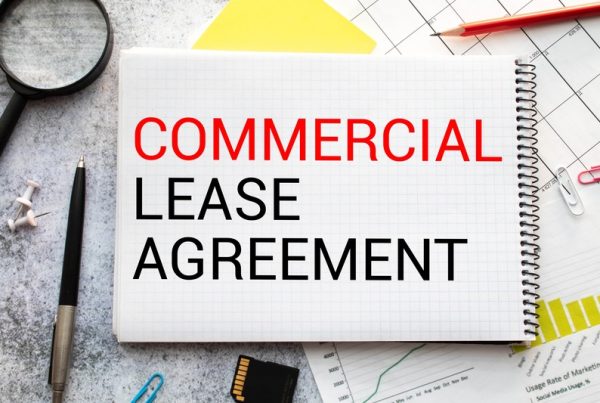As a business owner, you may hear the terms bonded and insured quite a bit. But what do they mean and which should you choose? Being bonds gives clients a limited guarantee while being insured protects you from accidents and liabilities. Insurance covers more than bonds. For some, especially those in the contracting service industry, you may want to have both and here’s why.
What Is a Bond?
A bond is a contract between the bond company known as the surety and the service provider known as the principal. It guarantees payment of a limited dollar amount to the customer known as the obligee. If the principal fails to live up to the terms of the service contract, the bond will be paid to the obligee by the surety.
The principal isn’t off the hook; he must repay the surety the amount of the bond to satisfy the agreement. This is different from insurance where the insurance carrier pays the loss and the insured doesn’t need to repay anything because he paid his premiums. Work bonds should not be confused with investment bonds, which are debt instruments investors purchase to get an interest rate paid by the bond issuer.
Types of Bonds
Bonds come in many forms and sizes. There are a variety of bonds to choose from:
- Contract: Provides a guarantee that a contract will be fulfilled for the defined price. This may also be called a performance bond, bid bond, or maintenance bond.
- Court: A surety bond that is needed when going through a court proceeding. It is designed to reduce the potential financial loss that may happen. An example of a court bond is a probate bond.
- Fidelity: This is a business bond that protects employers from losses caused by employee dishonesty and fraud.
- License & Permit: A bond that makes sure that a business will adhere to applicable laws and regulations set forth by a municipality or other public entity.
- Notary: Ensures that notaries will not be held personally liable for mistakes when notarizing documents.
- Probate: A type of court bond that protects beneficiaries during a probate case. The bond is used for the duration of the probate to ensure that estate proceeds are properly divided and distributed.
- Performance: A type of contract bond that guarantees that a project will be completed as terms are outlined in the contract.
- Bid: A type of contract bond that guarantees subcontractor and supplier payments.
- Payment: This is a surety bond that says that all parties in a project will be paid according to contract terms.
- Dishonesty: A type of fidelity bond that protects a business from employee wrongdoing including theft.
What Is Insurance?
A small business insurance policy is a contract between the insurance company and the business. The insured pays policy premiums defined by the insurance carrier. If there is a loss that is a covered peril in the insurance contract, the insurance company will pay up to the policy limits. The insured does not need to repay the insurance company as he would with a bond.
Insurance protects against certain risks such as theft, vandalism, water damage, and fire. There are different types of insurance policies that a small business owner might get to cover different types of losses.
Types of Insurance Policies
Let’s take a closer look at the types of insurance policies that a business owner might consider adding to his portfolio:
- General liability insurance: Covers business owners who may have third-party losses on site. Losses might include things like someone getting hurt or someone’s property being damaged as a result of the business’s operations. A common claim is a slip and fall injury.
- Professional liability insurance: Pays claims where a customer alleges that you didn’t do your job according to professional standards. A common claim is when a professional gives inaccurate advice to a client.
- Worker’s compensation insurance: Protects employers from having to pay for injuries an employee sustains while working. This is required by law in most states for any business with at least one employee.
- Errors and omissions insurance: You may know this as malpractice insurance for doctors. Errors and omissions pays claims that say you made a mistake in your professional services.
- Commercial property insurance: This pays you to repair or replace business property that is lost due to theft, fire, or other covered perils. Commercial property insurance is often paired with general liability insurance in a business owner’s policy (BOP).
- Cyber liability insurance: Covers losses associated with the hacks that may occur for databases and websites.
Who Needs a Surety Bond?
A surety bond is required for certain professions for licensing. It is required as part of the state or municipality’s prerequisites to obtaining a license. Popular industries include contractors, tax preparers, and notary services. Other industries and their service providers may choose to be bonded. This includes interior decorators, home organizers, and house cleaners.
Getting a bond, even if not required, gives consumers confidence that you are a professional who takes your business seriously. Being bonded may help you obtain more clients and get more contracts.
Who Needs Insurance?
It’s hard to imagine any business that doesn’t need some sort of insurance. A business that leases property will be required to get a general liability policy that protects the landlord from business liabilities. It also protects the building from things like fire losses. Companies with employees must have worker’s compensation insurance to comply with state laws.
Even businesses that aren’t required to have insurance should consider the costs of risks. If something happens, most business owners don’t have the financial resources to deal with the loss and keep the company afloat. This is why more businesses are looking for optional coverage such as professional liability insurance and cyber coverage.
Why You May Need Both a Bond and Insurance
There’s good reason to consider having both a bond and insurance as a business owner. As already mentioned, customers feel more confident working with companies that are both bonded and insured. This opens up new areas of business because you can market yourself as “bonded and insured.”
While a bond is an insurance product, it covers different things than insurance. It guarantees that the job will be completed as expected. It doesn’t protect against losses like injuries or property damage. Ultimately, bonds protect customers from a business not performing whereas insurance usually protects first-party and third-party claims. First-party claims are losses the business incurs such as property loss whereas third-party claims are other people’s losses such as what happens in a slip and fall accident.
Service providers that work with bigger companies or government contracts may be required to obtain liability insurance. Without it, you can’t get the contract. This is another reason to make sure that you have both a bond and insurance.
Concluding Thoughts
Business owners should look at all ways in which they can protect their business. A bond and insurance are a good start to making sure the business owner won’t be held financially liable for losses. In the end, it’s about getting the protection to make sure that you can weather the financial storm if your business experiences a loss that can cost thousands.












